
Early Career Researchers - Reflect on Making Progress
Some of our fantastic early career prostate cancer researchers reflect upon the impact of the keynote talks and skills training at Making Progress.
Skills Training
There were five different skills training sessions delivered by Prostate Cancer UK staff - all focussing on different aspects of… How to tell a compelling research story!
How to tell a compelling research story... through media coverage.
Training led by Media and PR Manager, Luke Walton, and Senior Media and PR Officer, Rachel Bruce.

"The workshop felt empowering and provided a refreshing perspective on how to bridge the gap between science and the wider world. Researchers must be proactive and confident to control the narrative around their work."
"The Prostate Cancer UK media team work closely with researchers to create a sharp, concise story that the audience can relate to. It was great to see some examples of press releases and try to describe our own work in a short, understandable, and catchy sentence."
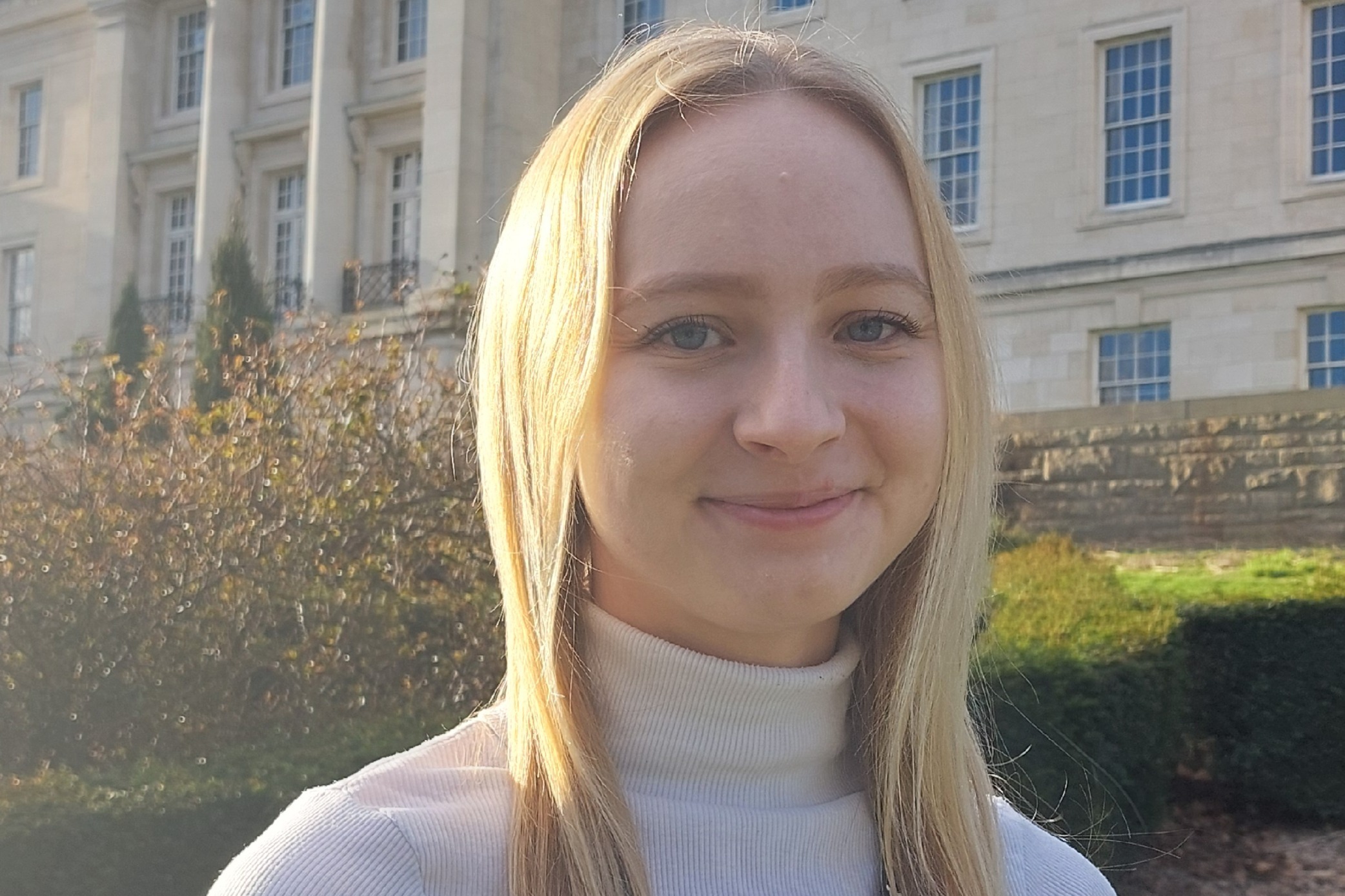
The workshop focused on effectively communicating research findings to the public through the media. The session emphasised the importance of accurate and clear communication with the public relations team, strategies for engaging with journalists, and the creation of a compelling narrative to highlight scientific work.
I learned how important the media is in shaping public perception of research, and how it can have both positive and negative effects. Researchers must be proactive and confident to control the narrative around their work. It's essential to use clear, concise, and easily understandable language to prevent misinterpretation of the data.
In my work, this insight will help me think more carefully about how I present my findings, particularly when sharing them outside of the academic environment. I now feel more confident in engaging with media platforms and utilising them to expand the reach of my research.
My favourite part of Making Progress as a whole was the opportunity to connect with others in the field and acquire practical skills that are often not covered in a typical conference. The workshop felt empowering and provided a refreshing perspective on how to bridge the gap between science and the wider world. I was also very interested in hearing the perspectives of individuals affected by prostate cancer, those working to improve prostate cancer from non-scientific fields, and the journeys of people who have achieved significant accomplishments in this area.
The session introduced the types of media coverage that may be used to promote our research, how to prepare for any media coverage, and how the Prostate Cancer UK media team facilitate this.
I learnt how the Prostate Cancer UK media team work closely with the researchers to create a sharp and concise story that the audience can relate to. It was great to see some examples of press releases and try to describe our own work in a short, understandable, and catchy sentence.
This session was helpful for expanding my knowledge on engaging with the media. It has also given me the confidence to engage with media for coverage of my future research findings and publications from my Prostate Cancer UK Career Acceleration Fellowship.
Making Progress 2025 was a fantastic event, and I was grateful to be invited to attend and give a flash talk. It was amazing to network with other early career researchers and see the breadth of work Prostate Cancer UK is enabling.
How to tell a compelling research story... to men and their families.
Training led by Senior Research Officer, Debbie Peebles, and Senior Research Officer, Krishna Kothandapani.
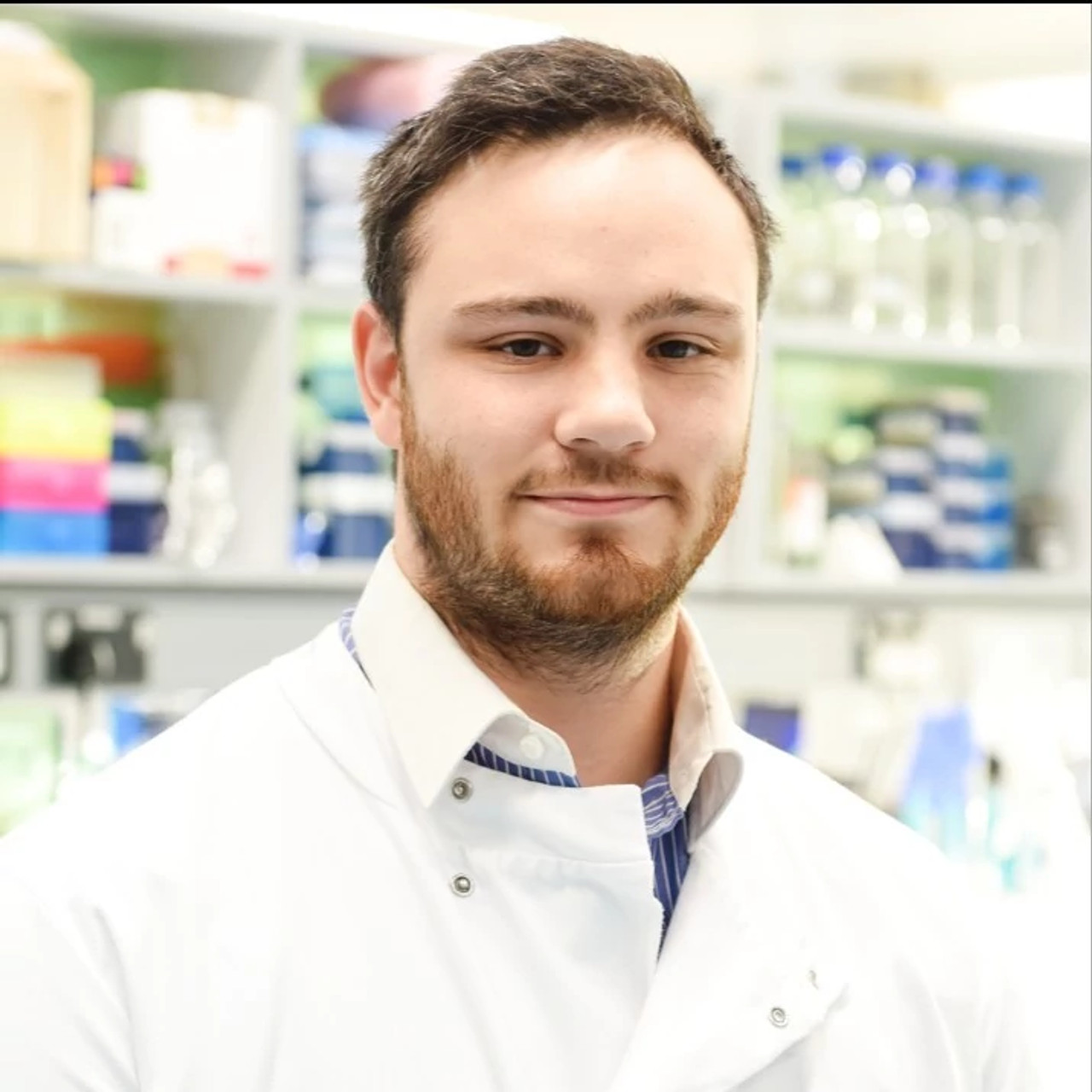
"The session prompted me to think more proactively about increasing patient involvement in research. It reinforced the importance of fostering collaboration with those directly affected by prostate cancer to ensure that research outcomes align with the needs of patients and their families."
"I understood why Patient and Public Involvement (PPI) is so essential—not just before a project starts, but throughout and even after it ends, and how to add it through all stages of the research pipeline. Now I feel much more confident about how to include PPI in future grant applications and research projects."

The session explored the increasing integration of men and their families into the research process. We began by discussing the various ways men can engage with research—whether through active involvement, participation, or broader engagement. The session also highlighted the key role that Prostate Cancer UK plays in bridging the gap between researchers and men with lived experience. One particularly insightful activity involved analysing different scenarios and brainstorming strategies to enhance the involvement of men and their families in various research settings.
I found the session valuable in prompting me to think more proactively about increasing patient involvement in research. It reinforced the importance of fostering collaboration between researchers and those directly affected by prostate cancer to ensure that research outcomes align with the needs of patients and their families.
Beyond the session itself, the Making Progress event provided an excellent opportunity to reconnect with familiar colleagues and meet new professionals working towards the same goals. The atmosphere was relaxed and supportive, making it a great space for postgraduate researchers to gain exposure to ongoing work in prostate cancer research while also developing essential soft skills.
As a lab-based early career researcher, I’ve always felt that patient and public involvement (PPI) was something a bit removed from my daily work. But the 'Men and Their Families' session at Making Progress completely changed that.
I understood the difference between PPI and PPE (patient and public engagement), why PPI is so essential—not just before a project starts, but throughout and even after it ends, and how to add it through all stages of the research pipeline. Talking to other researchers and hearing from patient representatives gave me a new perspective: the small wins we see in the lab can actually mean a lot to real people.
My favourite part of Making Progress was hearing patient stories—it reminded me that improving someone’s quality of life is just as meaningful as finding a cure. Now I feel much more confident about how to include PPI in future grant applications and research projects.
How to tell a compelling research story... for a grant application.
Training led by Assistant Director of Research, Simon Grieveson, and Head of Research Funding, Julia Ambler.
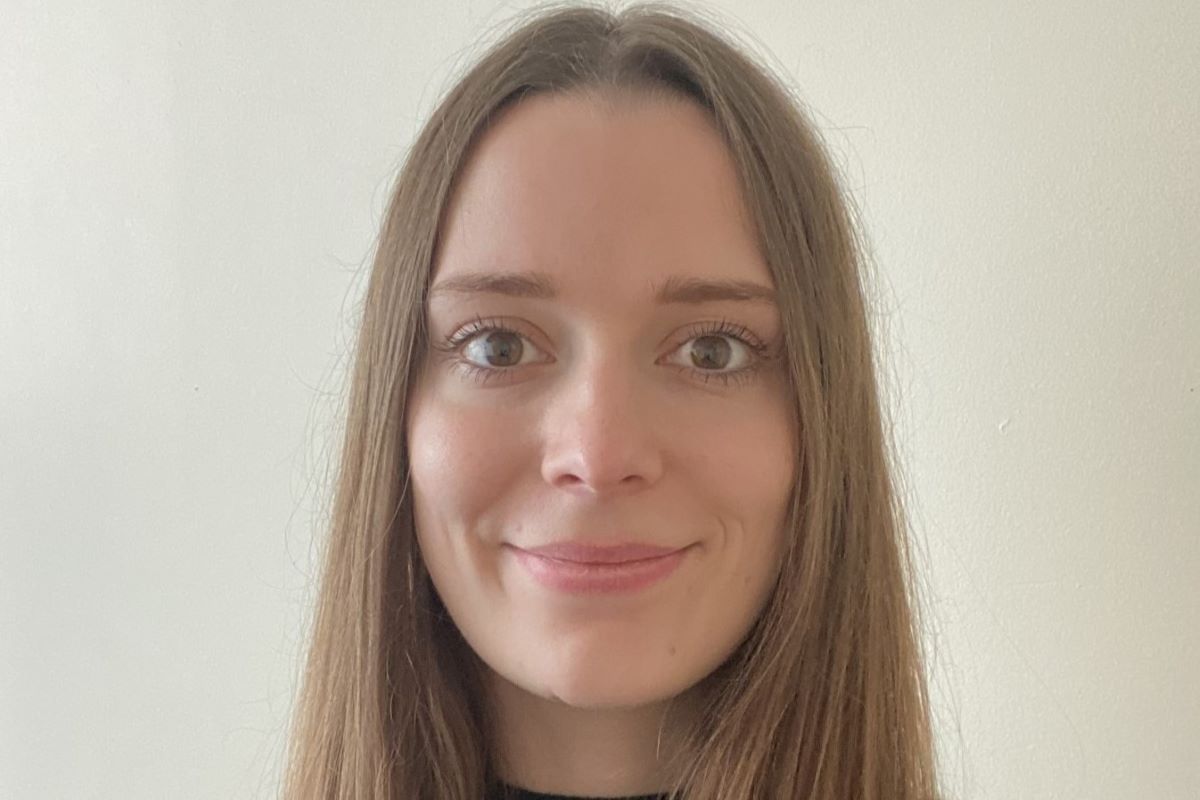
"I will utilise the resources and knowledge gained today when applying to grants in the future to ensure my research proposal meets all the requirements. I will also draw on the experiences of other researchers that were shared in the session."
"The session gave us a great insight into both the grant application and reviewal process. Key pit falls to avoid when submitting applications were highlighted, as well as helpful tips to improve applications success."
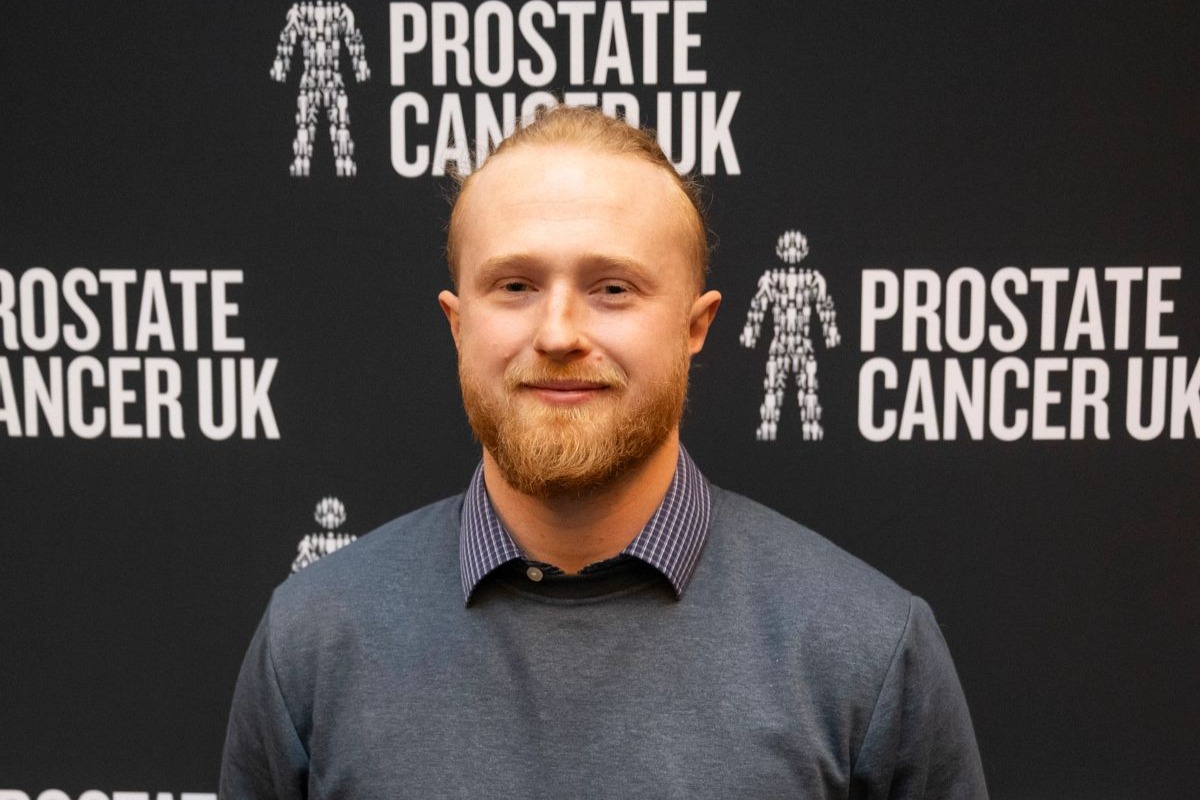
The workshop was about writing grant applications for Prostate Cancer UK funding, with a particular highlight on the Prostate Cancer UK Career Acceleration Fellowship.
The group discussions on grant writing experience and how to develop a good grant, highlighted the importance of starting a grant application many months before the deadline and seeking mentorship, feedback and support from my institute, colleagues and Prostate Cancer UK. I learnt more about the support and opportunities for learning offered or facilitated by Prostate Cancer UK, which includes their mentoring scheme, patient network and opportunities to observe committee meetings. I also learnt Prostate Cancer UKs grant application process and their grant criteria, which is the criteria peer reviewers and committee members will be applying when considering applications. It is critical that all the grant requirements, such as a detailed and accurate financial plan, realistic timeline, well considered contingencies and compelling preliminary data, come together to support your novel and innovative research project idea.
I will utilise the resources and knowledge gained today when applying to grants in the future to ensure my research proposal meets all the requirements. I will also draw on the experiences of other researchers that were shared in the session. I met many researchers today, including in this session, so I will continue networking with these researchers for grant advice and for collaboration on future grants for research projects.
This event was a fantastic opportunity for the prostate cancer ECR community to come together to discuss their projects and build relationships for the future of prostate cancer research. It was wonderful to feel part of the community. I learnt a lot and the talks, posters and conversations I had prompted several ideas to improve and progress my own work. It is always motivating to hear a patient’s story and Dr Kelly Coffey’s talk was inspiring. It was also wonderful to hear the progress that the Career Acceleration Fellows have made since I last heard them speak at From Ideas to Innovation.
The session gave us a great insight into both the grant application and reviewal process. Key pit falls to avoid when submitting applications were highlighted, as well as helpful tips to improve applications success. The addition of a well written lay summary aids in the dissemination of a projects goals for both patients and researchers. Further suggestions included having clear and achievable goals within the timeframe of the project. A final suggestion was the inclusion of multiple contingency plans, to prepare for a worst-case scenario.
This workshop was incredibly insightful and a wonderful experience to connect with members of the research funding team, who were particularly helpful, answering any questions we had about the application process on a whole and making many useful suggestions.
As an early career researcher, the grant writing workshop gave me a great opportunity to start building the groundwork for my application for a Prostate Cancer UK Career Acceleration Fellowship next year.
The Prostate Cancer UK Making Progress event was an insightful experience allowing early career researchers to meet and form connections which will flourish throughout the coming years. I would like to thank Prostate Cancer UK for funding my travel to the conference through the travel bursary, allowing me to share my research with many other prostate cancer researchers. These experiences are crucial in developing new ideas, aimed at improving men’s lives!
How to tell a compelling research story... for a lay audience.
Training led by Senior Strategic Content Officer, Conor McKeever, and Head of Research Impact and Engagement, Hayley Luxton.
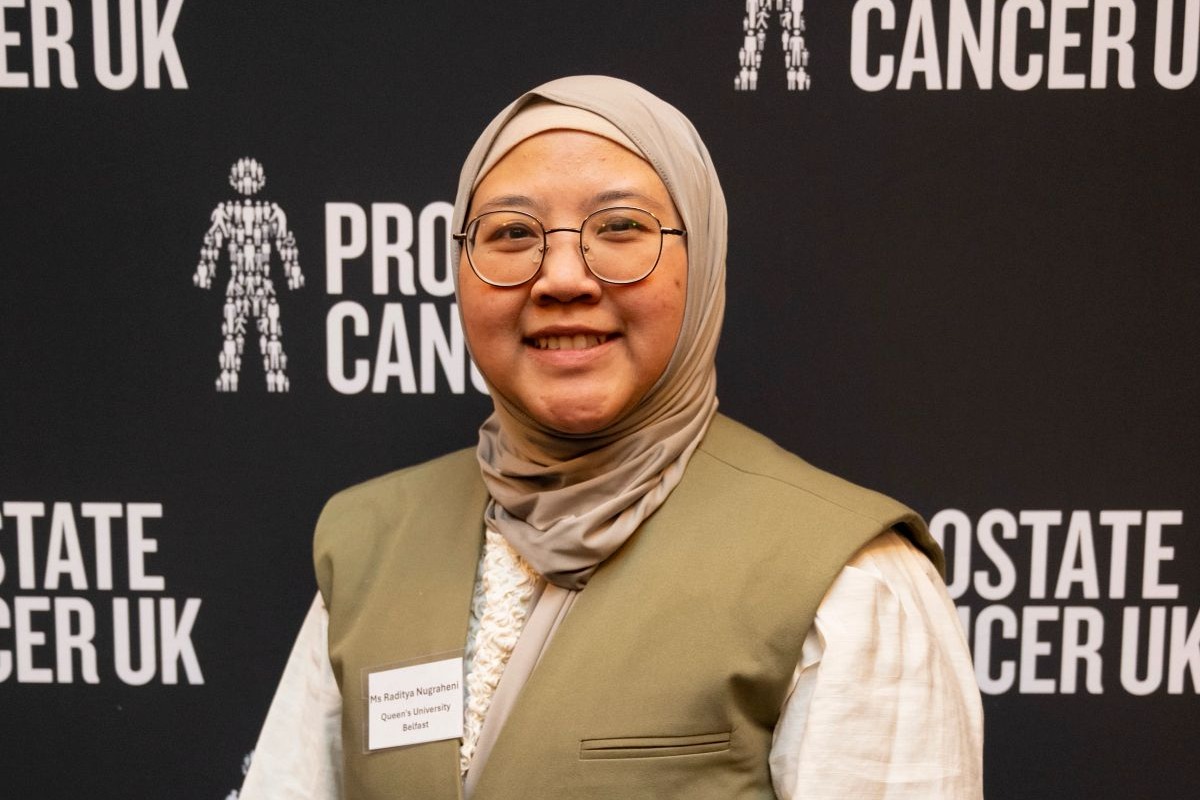
"Avoiding jargon can be incredibly helpful in delivering our message without losing its core meaning. Effectively sharing the progress of science with lay audiences, such as patients' families, friends, and the broader public, can offer hope for future prostate cancer treatments."
"This session and the skills gained will be hugely beneficial to me in my own research, especially when presenting my work to patient support groups and other outreach activities."
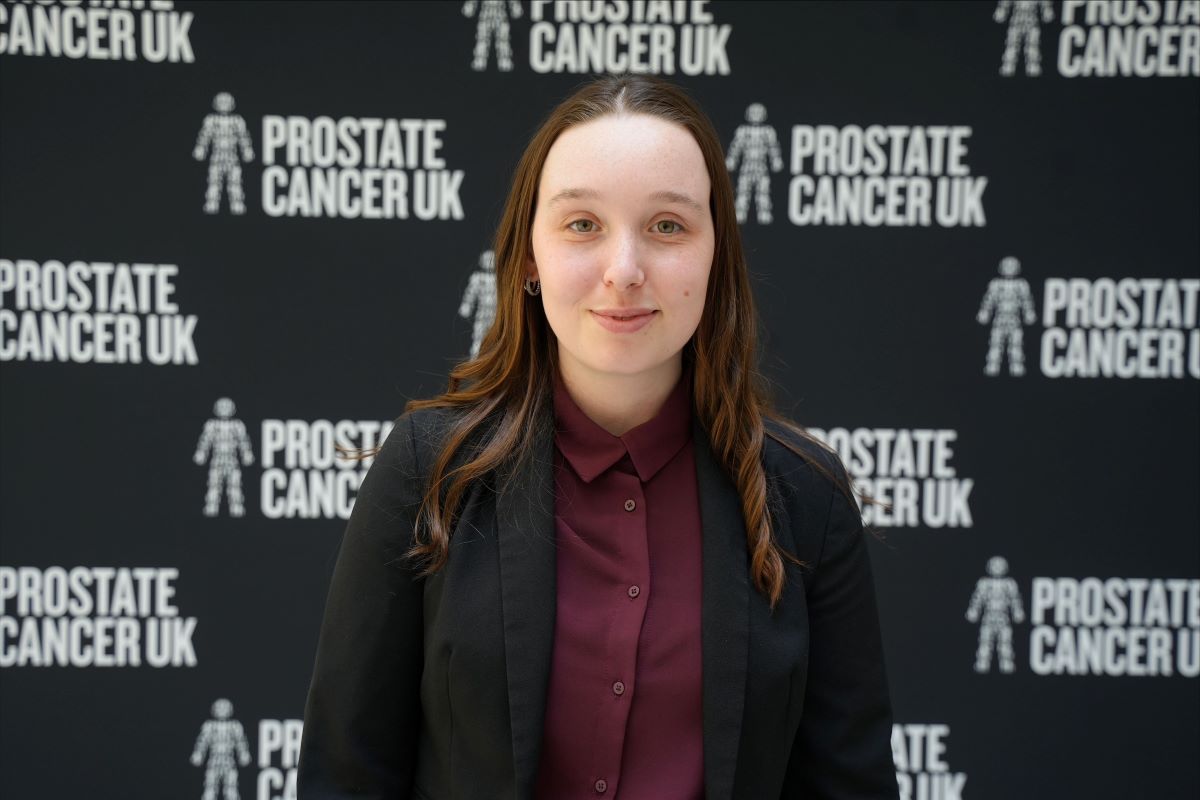
Communicating the results of our research to a lay audience can be challenging due to the technical language commonly used in science. From the skill sessions, we learned that avoiding jargon can be incredibly helpful in delivering our message without losing its core meaning. Being concise and brief is also essential to keep the audience engaged and focused.
The 'elevator pitch' is a valuable training method that helps us practice conveying the main points of our research in just 30—or even 15—seconds. Effectively sharing the progress of science with lay audiences, such as patients' families, friends, and the broader public, can offer hope for future prostate cancer treatments and help them understand the direction of potential therapeutic developments.
The Making Progress event opened a new perspective for me as an early career researcher. It highlighted the vast potential in developing new therapies, improving screening techniques, and alleviating the side effects of existing treatments.
I found both keynote speeches—one from a man with lived experience, and another from a researcher sharing their career journey—especially meaningful. They offered important insights and inspiration for those of us just starting our research careers.
The session focused on the development of skills needed for communicating your work to a lay audience. In this session I would like to highlight the card game (Taboo) which included a stack of key scientific words to be discussed on how these could be communicated to a lay audience.
The card game enabled me to learn how to discuss ways to effectively communicate these words in lay terms. In addition to this, the session taught me how to use two different techniques to tell the ‘story’ of my research alongside several top tips.
This session and the skills gained will be hugely beneficial to me in my own research specifically when presenting my work to patient support groups and other outreach activities I will be involved with during my PhD and future career.
Making Progress 2025 was a brilliant event, full of networking with other early career researchers. As I am starting on my journey as a prostate cancer researcher, it was great to see a supportive research community, where I hope to engage with at future events. A huge thank you to the team at Prostate Cancer UK for such an amazing event.
How to tell a compelling research story... through social media.
Training led by Senior Research Impact Officer, Greg Halliwell, and Research Impact and Engagement Manager, Ellie Davison.
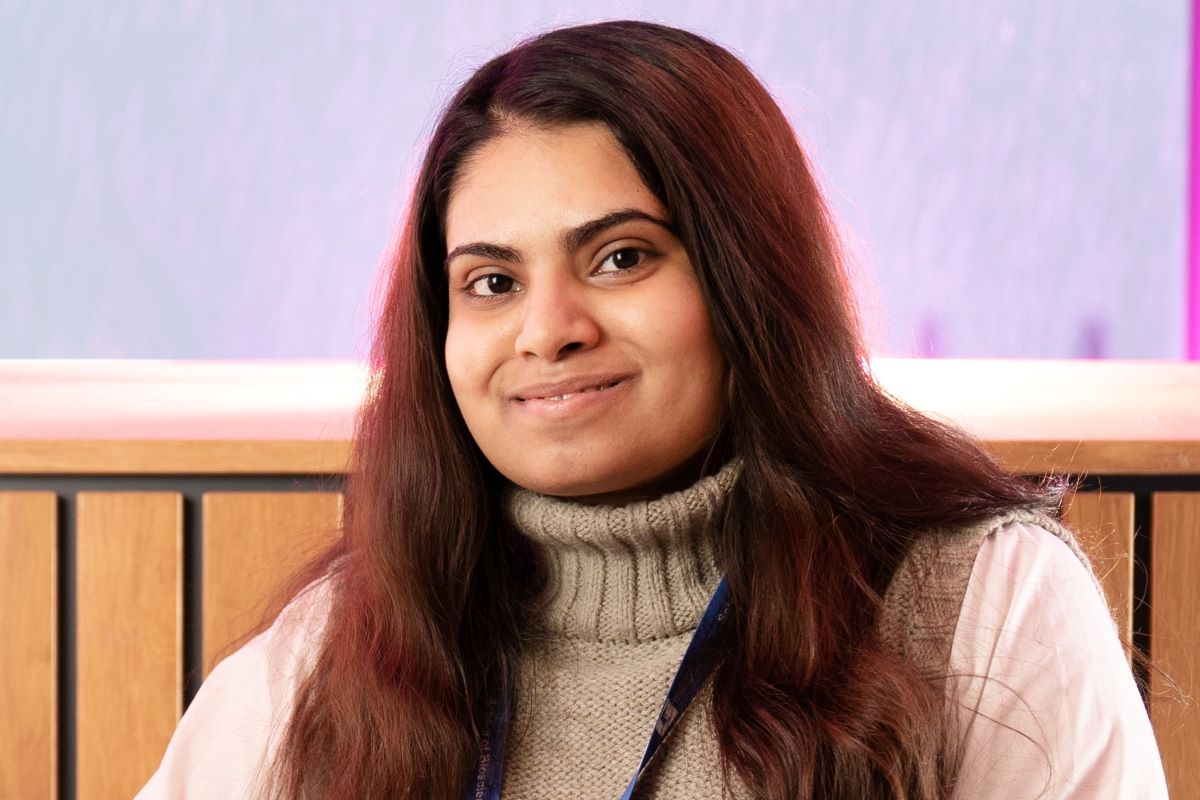
"The session explored how researchers can make more effective use of social media platforms to communicate their research with diverse audiences."
"From attracting readers and designing visuals to tracking engagement - I learned many practical tips and tools that I can apply right away. I especially enjoyed the group discussions, where we exchanged ideas and learned from each other’s approaches."
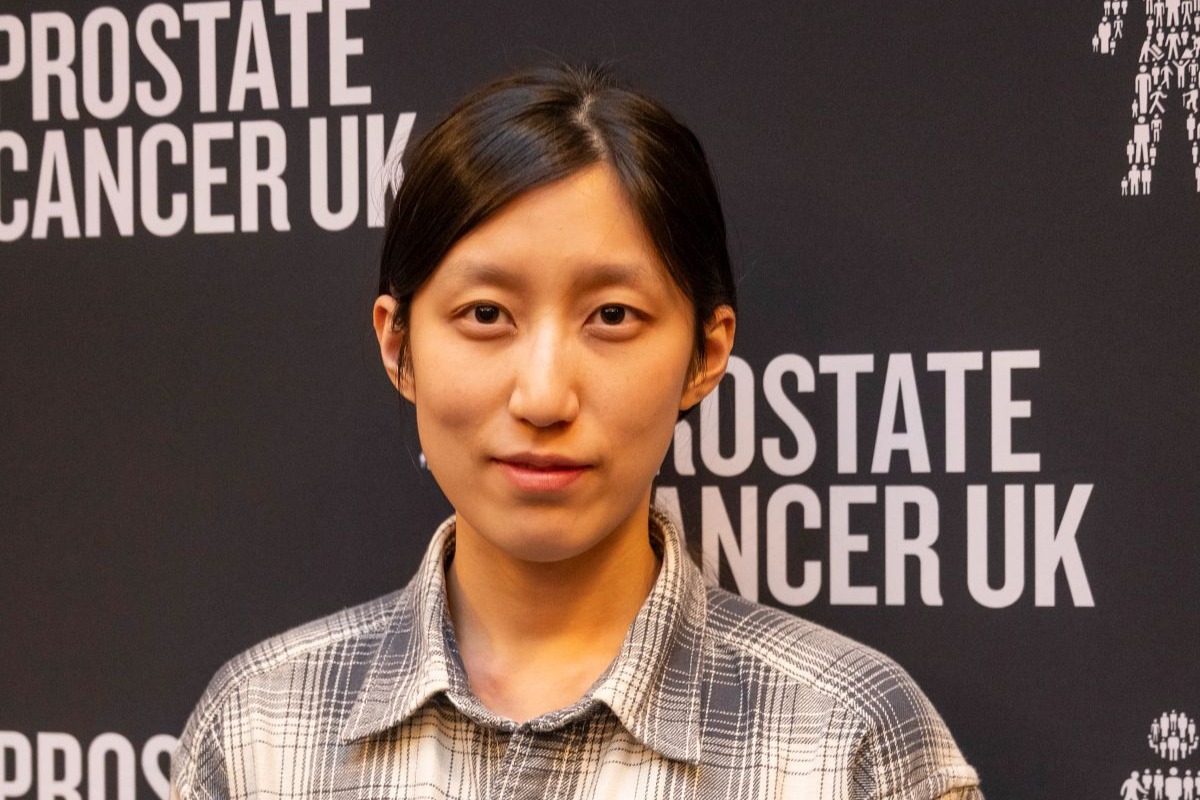
The social media skills session explored how researchers can make more effective use of social media platforms to communicate their research with diverse audiences. A key focus was on strategies to boost viewer engagement with the posts, while keeping the content short and concise.
I found this session very useful, as it provided some practical tips to make posts more engaging to the viewers across different social media platforms. This included incorporating eye-catching visuals, like images or graphical abstract in the posts, starting the post with a gripping fact or question relevant to the research, and tailoring the content of the post to suit the diverse audiences across different platforms, thereby maximising the reach of the post. These tips will be helpful soon, when I start sharing my research papers on social media to engage with professional audiences, hoping to enhance career opportunities. They will also help me communicate my research achievements with friends and family on more informal platforms.
Overall, I really enjoyed the Making Progress meeting but the highlights for me were the keynote talks. Ian Louden’s powerful reflection on his lived experience as a prostate cancer patient highlighted the real-world impact of prostate cancer research and the importance of focusing not just on treatments, but also on improving patients' quality of life. Dr Kelly Coffey’s talk on her career journey was very inspirational. Her honest perspective on navigating the ups and downs of research left me feeling encouraged and motivated to embrace challenges without fear of failure. Networking with other early career researchers was also a great opportunity to exchange ideas and experiences, fostering a real sense of scientific community.
I’ve always believed that social media is a powerful and efficient way to communicate research, and this session really reinforced that idea for me. This session focused on how to use social media to effectively share research — from attracting readers and designing visuals to tracking engagement.
I learned many practical tips and tools that I can apply right away. I especially enjoyed the group discussions, where we exchanged ideas and learned from each other’s approaches. The mind map activity was my favourite part — it clearly captured everyone’s input and suggestions. The session also inspired me to think more about how I might share my work through blog posts and other platforms in the future.
Keynote Talks
Early Career Researches at Making Progress experienced two inspirational keynotes - a man with lived experience of prostate cancer, Ian Louden, and Research Innovation Award holder, Dr Kelly Coffey.
"The key takeaway for me was the responsibility that comes with our role as researchers. Ian reminded us that a prostate cancer patient is always eagerly waiting, holding on to every bit of hope that our research brings."
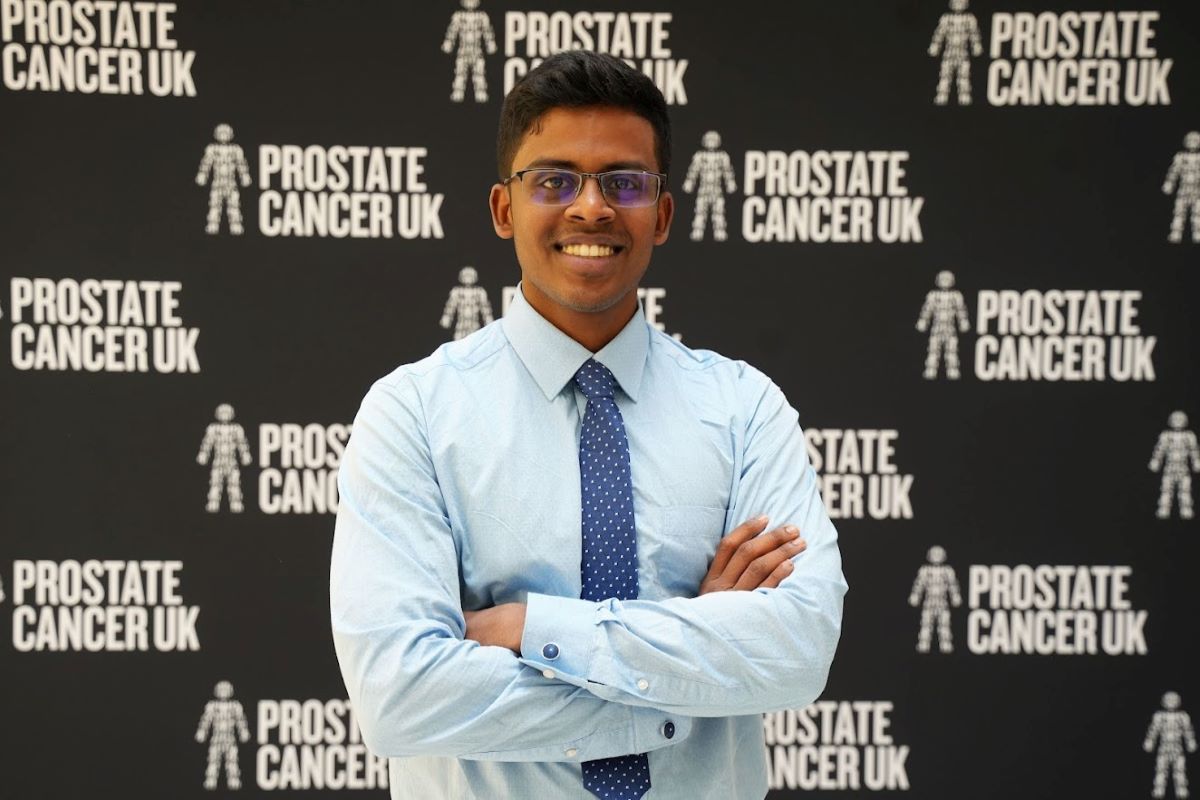
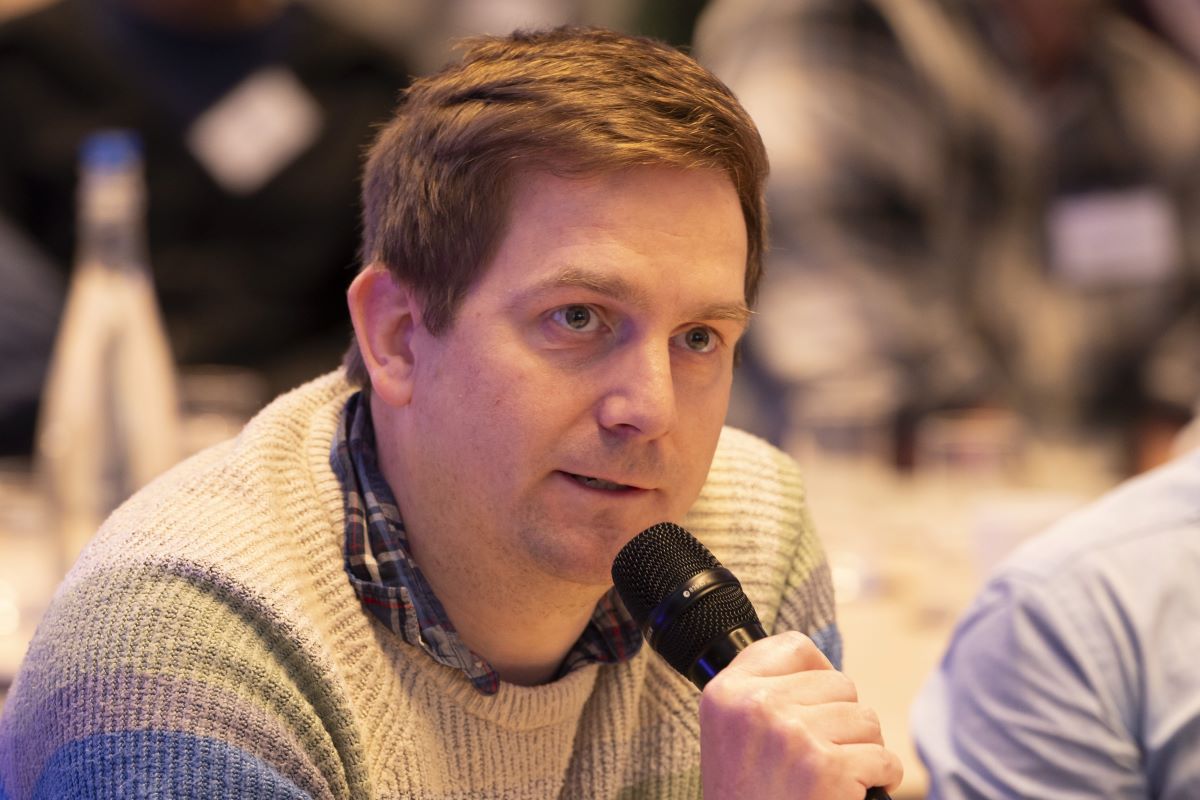
"From her family background to how she became the independent researcher she is today, Kelly shared her top tips for anyone wanting to apply for a fellowship. Cake also helps!"
I’m grateful to have been able to attend the talk by Ian Louden, keynote speaker and a man with lived experience of Prostate Cancer. Ian shared his journey from being diagnosed with prostate cancer, to the challenges he faced, and the sacrifices he made to be where he is today.
I don’t think I could do justice to putting into words what I learned from his talk, as it was more of an experience, and realisation of who we as researchers are and what we mean to patients. The key takeaway for me was the responsibility that comes with our role as researchers.
Ian shared his journey through cancer, and that reminded me of the true reason why I chose cancer research as a career. Whilst working in the lab day in and day out, we can forget the initial motivation that drove us into this career path. He reminded us that a prostate cancer patient is always eagerly waiting, holding on to every bit of hope that our research brings.
Ian urged researchers to look into improving the quality of life for patients during and after treatment. He was very brave in sharing his own experiences, including his symptoms. It is a tough journey for them and their loved ones, and the side effects of treatments add another burden to their already affected wellbeing. Along with my current research interests, I would also like to be involved in studies that utilise patient support groups, in finding ways to help with mental health and living with treatment side-effects, this being open to all patients from different backgrounds.
The Making Progress event was very well organised and am grateful to Prostate Cancer UK for funding my travel to the event and giving me the opportunity to present my research! My favourite thing was having an ECR focussed event where I could connect and network with my ECRs and see the amazing research happening around the country. It was great to meet my peers, and potential future collaborators, as we all share the same goal of advancing research in prostate cancer. I liked the Human Bingo game as I’m a shy extrovert, so it was a perfect icebreaker, giving me a reason to go and talk to people. I really loved the skills sessions too, as firstly, I got to meet the Prostate Cancer UK team, whom I usually only interact with over email and secondly, I got to learn about different skills in a personalised and engaging environment.
Kelly’s talk was on her background and the top tips she had for anyone wanting to apply for a fellowship. Starting with her family background in Northumberland and how she built her application to be the independent researcher she is today.
I learnt the importance of carefully reading and understanding the funder’s guidance and clearly identifying where and how you might address problems that you will inevitably encounter during your project. Cake also helps!
Kelly’s guidance on reaching out to former and current panel members was very helpful, along with the mentorship programme offered by Prostate Cancer UK.
Overall, the selection of research posters was great, and the talk from Ian Louden was exceptional, really bringing home how important the work that Prostate Cancer UK and researchers do to help people affected by prostate cancer.

